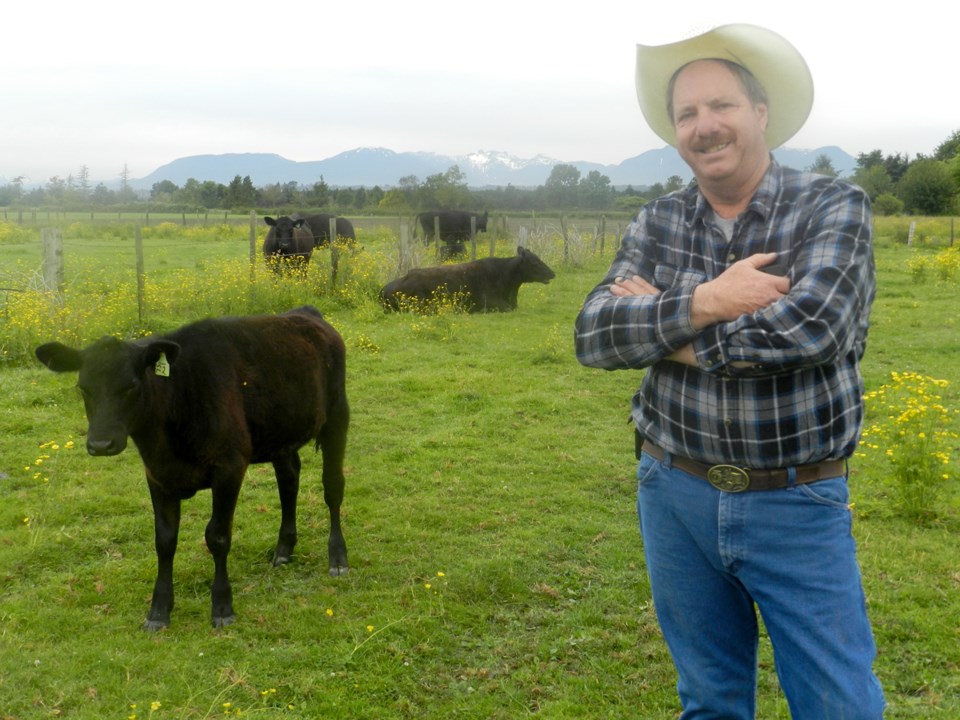A Vancouver start-up company is using digital age connectivity to get consumers back in touch with where some of their food comes from.
Meatme.ca, which started to include Richmond customers in its service this month, has its customers buy into sharing orders of beef, chicken and lamb that has not only been raised without the use of hormones and antibiotics, but in a humane manner, as well.
The service is the brainchild of entrepreneur Victor Staatman, who co-founded Meatme.ca after he moved to the Lower Mainland two years ago from the Netherlands and found it was quite a chore to source meat providers who ticked all of the boxes he valued.
“I was looking to order some ethically raised beef from local farms and thought I’d go to a website and just order it,” he said.
“And I couldn’t find a proper source. So, I started asking around and finally got in contact with a farmer up north and managed to place an order, essentially by emailing him.”
What Staatman was told to do was meet the farmer in a parking lot in North Vancouver on a pre-arranged day where he would deliver the meat to him and a group of other clients.
“I met him, handed over my paper cheque and thought to myself that while some people might be OK doing this, it would be better for the whole community and the environment to source someone more local and make the entire process more convenient,” Staatman said.
That’s how Meatme.ca was started and is now billed as the Tinder for meat in its ability to make connections with buyers and suppliers.
But establishing that convenience factor is only part of the equation, Staatman said
“For us, it’s also about the quality of life for the animals and their feed. We like to know where their feed is coming from. Is it local, or is it coming from the U.S. Essentially, we’d like to see as small an environmental footprint as possible when it comes to raising the meat.”
In terms of ethical farm practices, Staatman said that for beef, Meatme.ca prefers cattle wrangled by horses to keep anxiety levels in check.
“We also want to work with farmers that use local abattoirs to lessen the amount of time animals spend in transit, which can be stressful on them,” he said.
“And personally, I think that people really are what they eat,” Staatman added. “Eating healthy is a really important thing. And looking at what is presented in conventional stores, it’s not ideal.
“I found that we have these healthy, ethical sources nearby. But people had this disconnect about buying from local farms because it is too much work. That’s why they go back to the factory farms and their products that are found in the supermarket.”
In terms of pricing, Staatman said Meatme.ca is slightly less expensive than the higher end products offered in grocery stores.
“We provide a better quality product for a price which is competitive,” he said, adding customers buy shares in an animal which sets a minimum order size.
Overall, Meatme.ca hopes to keep small farming operations relevant by hooking them up with an alternate stream of customers.
“Because if those farms can’t grow, or even sustain themselves, we may lose them altogether and have big corporations buy them for other types of farming,” Staatman said.
Keen on the aspect of re-establishing a connection between consumers and farmers is longtime farmer Bill Zylmans, who raises his own, small number of Black Angus cattle on his east Richmond property and sells the meat from his farm store.
Currently, he is not one of the suppliers to Meatme.ca which is so far limiting its list of suppliers as it begins to slowly grow a roster of clients.
“Once upon a time, everyone had a farming background or connected to a family farm,” Zylmans said. “It’s only in the last three or four generations that people are not raised on farms and they buy their eggs and meat at a grocery store.
“We’ve lost that connection and this seems like a way of re-connecting those dots.”
Agri-tourism is attempting to help bridge that divide, Zylmans said.
“Farmers are opening up their properties to let the public see who they are, market their products and put the public’s mind at ease that we’re doing the right things,” Zylmans said. “And for the most part, everyone is trying to do things properly. We have a lot of rules and regulations around food and livestock already that don’t allow for mishandling and abuse of animals.”



